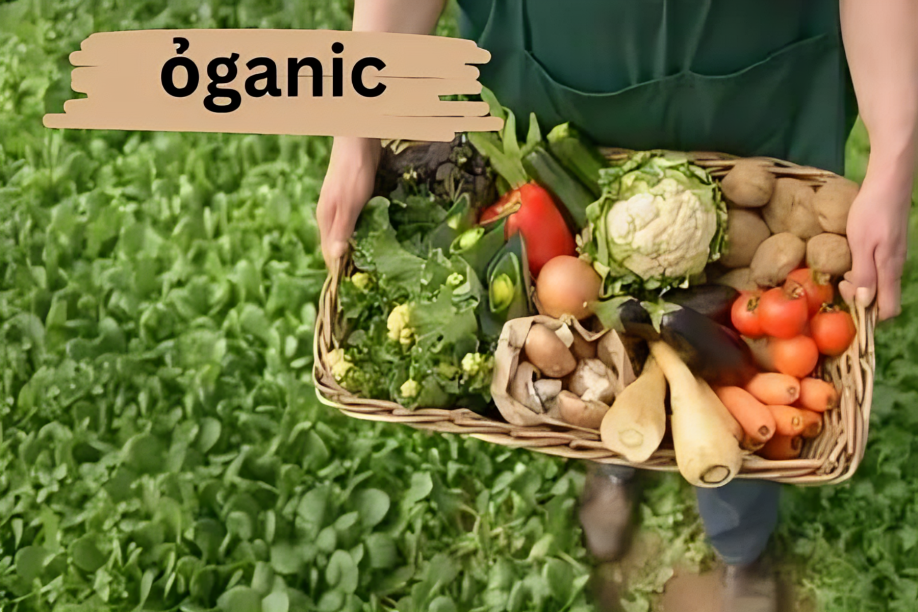Unveiling the Organic World: A Comprehensive Guide to Organic Food
Introduction
In recent years, the term “organic” has infiltrated our everyday vocabulary, touching everything from the apples we buy at the supermarket to the cotton T-shirts we wear. But what does “organic” really mean? This comprehensive guide explores the core principles of organic practices, their benefits, the farming techniques involved, and the broader applications of organic principles beyond just food. Whether you’re a seasoned organic enthusiast or new to the concept, this guide will provide valuable insights to help you understand and navigate the world of organic.
Decoding Organic: Understanding the Core Principles
What Does Organic Mean?
In the realm of food and agriculture, “organic” refers to a method of farming and production that avoids the use of synthetic inputs. This includes synthetic pesticides, herbicides, fertilizers, and genetically modified organisms (GMOs). Instead, organic practices emphasize natural processes and materials, aiming to maintain ecological balance and promote sustainability. Here’s a closer look at the key principles of organic farming:
No Synthetic Pesticides or Herbicides
Organic farming strictly prohibits the use of man-made chemicals for pest and weed control. Instead, it relies on natural methods such as crop rotation, beneficial insects, and organic pest control solutions. This approach helps to minimize environmental contamination and protect non-target species.
No Genetically Modified Organisms (GMOs)
Organic production avoids genetically engineered crops and animals. The use of GMOs is a contentious issue, with concerns about their impact on biodiversity, ecosystems, and potential long-term health effects. Organic standards reject GMOs to preserve traditional agricultural practices and natural genetic diversity.
Focus on Soil Health
A cornerstone of organic farming is the emphasis on soil health. Organic practices aim to nourish the soil by fostering a rich ecosystem of beneficial microbes. Techniques such as composting, cover cropping, and reduced tillage help to enhance soil fertility, structure, and water retention.
Animal Welfare
Organic livestock farming prioritizes the well-being of animals. Animals are given access to the outdoors, are not administered routine antibiotics or growth hormones, and are fed organic feed. These practices not only promote animal health but also align with ethical considerations about animal treatment.
Sustainable Practices
Organic farming promotes sustainability by minimizing environmental impact. This includes conserving water resources, reducing soil erosion, and supporting biodiversity. Organic farmers use practices that integrate with natural ecosystems rather than disrupting them.
Unveiling the Benefits of Organic: Why Choose Organic?
Potential Health Benefits
One of the primary reasons consumers choose organic is the potential health benefits. Some studies suggest that organic food may contain higher levels of certain antioxidants and be lower in pesticide residues. While research is ongoing, many people opt for organic foods to reduce their exposure to synthetic chemicals and support overall health.
Environmental Advantages
Organic farming practices offer several environmental benefits. By avoiding synthetic chemicals, organic farming reduces water pollution and minimizes harm to wildlife. The focus on soil health and biodiversity also contributes to more resilient ecosystems. Organic methods can help combat climate change by sequestering carbon in the soil and reducing greenhouse gas emissions.
Animal Welfare
For many consumers, organic standards align with their values regarding animal welfare. Organic farms are required to provide humane living conditions for animals, including access to pasture and freedom from unnecessary medications. This ethical approach resonates with those who are concerned about the treatment of farm animals.
Taste and Quality
Many people find that organic food tastes better and is fresher than conventionally grown produce. This perception may be due to the emphasis on natural ripening and traditional farming methods. While taste is subjective, many consumers believe that organic foods offer superior quality compared to their non-organic counterparts.
Understanding Organic Certification
Organic certification is a formal process that verifies that products meet established organic standards. This process involves inspections by independent certifying bodies to ensure compliance with organic regulations. Look for certifications such as USDA Certified Organic (in the United States) or the European Union Organic logo to confirm that a product adheres to organic standards.
Organic Farming Practices: A Glimpse into the Fields
Organic farmers employ a variety of techniques to cultivate healthy crops and raise animals sustainably. Here are some of the key practices used in organic farming:
Crop Rotation
Crop rotation involves planting different crops in a specific sequence over time. This practice helps to disrupt pest life cycles, reduce soil depletion, and replenish soil nutrients. By rotating crops, farmers can maintain soil fertility and reduce the need for synthetic fertilizers.
Cover Cropping
Cover cropping is the practice of planting specific crops between main growing seasons to protect and improve soil health. Cover crops can prevent soil erosion, add organic matter, and attract beneficial insects. Rye, vetch, and clover are typical cover crops.
Composting
Composting involves the decomposition of organic materials such as food scraps, yard waste, and animal manure. The resulting compost is a nutrient-rich soil amendment that enhances soil fertility and structure. Composting reduces waste and provides a natural alternative to synthetic fertilizers.
Biological Pest Control
Biological pest control uses natural predators and beneficial insects to manage pest populations. For example, ladybugs and lacewings can help control aphid infestations. By promoting a balanced ecosystem, biological pest control reduces the need for chemical interventions.
Manure Management
Organic farms use manure from organically raised animals as a natural fertilizer. Manure is composted or aged before application to minimize the risk of pathogens and nutrient runoff. Proper manure management supports soil health and reduces environmental impact.
Organic Feed for Livestock
Organic livestock are fed organic feed that is free from synthetic pesticides and fertilizers. Organic feed is designed to meet the nutritional needs of animals while adhering to organic standards. This practice supports the health and well-being of livestock and ensures the integrity of organic products.
Challenges of Organic Farming
Organic farming has numerous advantages, but there are drawbacks as well. Among the main concerns are:
Labor-Intensive Practices
Organic farming often requires more manual labor compared to conventional methods. Tasks such as weeding, pest management, and soil preparation can be more time-consuming and physically demanding. This increased labor can result in higher production costs for organic farmers.
Lower Crop Yields
Organic farms may experience lower crop yields initially due to the transition from conventional practices. This is often because organic methods rely on natural processes that take time to establish. However, many organic farmers report improved yields and resilience over time as their systems become more established.
Higher Costs for Consumers
Organic products often come with a higher price tag compared to conventionally grown items. This is due to the additional costs associated with organic farming practices, certification, and production. Consumers need to weigh the benefits of organic products against their budget and priorities.
A Look Beyond Food: Organic Spreads Its Wings
The principles of organic extend beyond food and agriculture. Here are some additional areas where organic practices are applied:
Organic Textiles
Organic textiles, such as organic cotton, are produced without synthetic pesticides or fertilizers. Organic cotton farming uses methods that reduce environmental impact and promote soil health. Organic textiles are often perceived as more sustainable and less allergenic.
Organic Cleaning Products
Organic cleaning products are formulated with natural ingredients and avoid synthetic chemicals. These products are designed to be gentler on the environment and human health. Many consumers choose organic cleaning products to reduce their exposure to harsh chemicals in their homes.
Organic Personal Care Products
Organic personal care products, including cosmetics and skincare items, are made without synthetic ingredients and harsh chemicals. These products aim to reduce skin irritation and promote overall well-being. Organic personal care products are popular among those seeking natural alternatives for their beauty routines.
Organic Gardening
Organic gardening focuses on using natural methods to grow plants without synthetic inputs. This includes practices such as composting, natural pest control, and soil enrichment. Organic gardening can be applied to home gardens, community plots, and small-scale farming operations.
Understanding Organic Certification: A Mark of Trust
Organic certification is essential for verifying that products meet established organic standards. Certification involves rigorous inspections and adherence to specific guidelines set by certifying bodies. Here’s what you need to know about organic certification:
The Certification Process
The certification process typically involves an application, inspection, and review. Certifying bodies assess whether farming or production practices align with organic standards. Inspections are conducted periodically to ensure ongoing compliance.
Certification Labels
Look for certification labels on products to confirm their organic status. In the United States, the USDA Certified Organic label indicates that a product meets USDA organic standards. The European Union Organic logo is another recognized certification in Europe. These labels provide assurance that products have been produced according to organic principles.
The Importance of Certification
Certification is crucial for maintaining the integrity of organic products and ensuring consumer trust. It helps to differentiate genuine organic products from those that may make misleading claims. Certification also supports transparency and accountability in the organic industry.
FAQs
Is Organic Food Always Healthier?
While some studies suggest potential health benefits of organic food, research is ongoing. Foods cultivated commercially or organically can both be included in a balanced diet. Factors such as variety, growing conditions, and storage also influence nutritional content. It’s important to consider organic food as part of a balanced approach to nutrition.
Are Organic Products Worth the Price Premium?
The decision to choose organic products is personal and depends on individual values, budget, and priorities. Some consumers are willing to pay a premium for organic products due to their perceived benefits for health, the environment, and animal welfare. Others may prioritize affordability or other factors. Evaluating your own preferences and needs can help guide your choices.
Conclusion
Organic practices encompass a broad range of principles and benefits, from reducing synthetic chemicals in our food to promoting sustainable farming methods. While there are challenges associated with organic farming, such as higher costs and labor requirements, the positive impacts on health, the environment, and animal welfare make it a compelling choice for many consumers.
Understanding organic principles, practices, and certifications empowers individuals to make informed decisions about their food and products. Whether you choose to fully embrace organic options or make incremental changes, every step toward a more sustainable and health-conscious lifestyle contributes to a greener planet.
As we navigate the world of organic, it’s essential to stay informed and consider our values and priorities. By doing so, we can make choices that align with our personal beliefs and support a healthier, more sustainable future for all.







